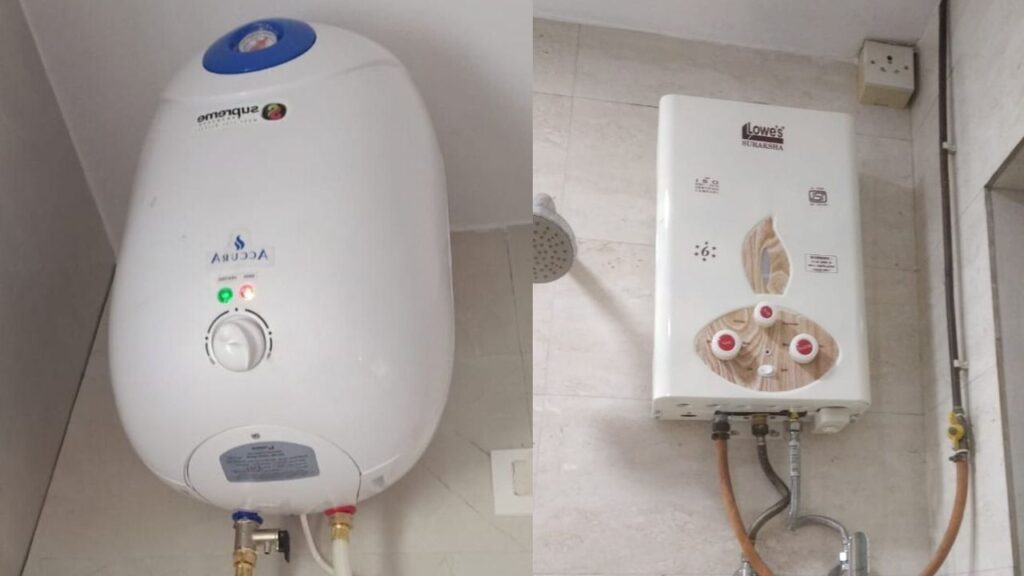As the rainy season sets in, the sweltering heat is finally departing, making way for the chill of winter. Just as air conditioners provide relief during the hot summer months, hot water becomes a necessity for bathing in the cold weather. Gone are the days when villagers relied on stoves to heat water for baths. Nowadays, in urban areas, people commonly use gas or immersion rods for hot water, both of which can take considerable time and can increase overall costs. Consequently, electric and gas geysers are now widely used in households.
Electric Geyser
Electric geysers are generally considered safer compared to their gas counterparts due to the absence of gas leaks. They are easy to install and require less space, making them ideal for smaller bathrooms. One of the major advantages is the ease of controlling the water temperature, allowing users to select their desired warmth. Additionally, electric geysers call for lower maintenance and are convenient for everyday use.
Advantages of Electric Geysers
- Safety: No risk of gas leaks.
- Space-Saving: Compact design suitable for limited spaces.
- Easy Installation: Straightforward setup without complex gas connections.
- Temperature Control: User-friendly controls for setting desired temperatures.
- Low Maintenance: Requires less frequent servicing.
Disadvantages of Electric Geysers
- Higher Electricity Costs: Increased electricity bills due to higher consumption.
- Slow Heating Time: It may take longer to heat water compared to gas geysers.
Gas Geyser
Gas geysers are known for their ability to heat water quickly, making them one of the preferred choices for those who require hot water on-demand. Unlike electric geysers, they are not dependent on electricity, which can lead to savings on your utility bills, especially in regions with lower gas prices. However, they do come with some risks, such as potential gas leaks, which can pose safety concerns.
Advantages of Gas Geysers
- Fast Heating: Heats water swiftly, ideal for immediate hot water needs.
- Cost-Effective: Potential savings on long-term energy costs if gas prices are favorable.
- Independence from Electricity: Functional even during power outages.
Disadvantages of Gas Geysers
- Safety Concerns: Risk of gas leaks, making it less secure in some scenarios.
- Installation Complexity: More complex installation that may require professional help.
- Space Requirements: Needs a larger space for installation compared to electric geysers.
Conclusion
Choosing between an electric or gas geyser depends on individual preferences and circumstances. If safety, ease of use, and minimal maintenance are your priorities, an electric geyser may be the ideal fit. On the other hand, if you are looking for rapid heating and cost-efficiency in the long run, a gas geyser could be the better option. Carefully consider your household needs and preferences to make the right choice for your winter bathing requirements.
